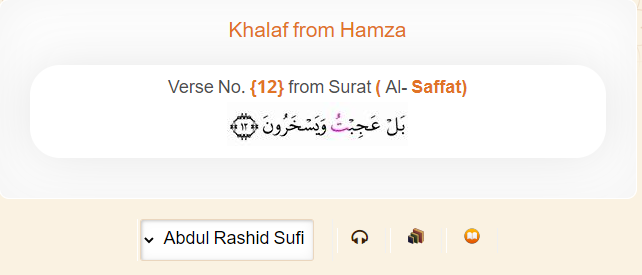Yes, there is a difference. Hamza, Al-Kisai, and Khalaf all recited it as عَجِبْتُ making the doer in this verb 'I'. In the recitation of the remaining reciters, the doer is 'you' which is the Prophet Muhammad (SAW).
There have been two views of who the 'I' would be. The obvious answer is that the speaker is Allah. عَجِبْتُ literally means "I wonder."
The question arises, how can Allah wonder when wondering requires you to not know about something before? The answer to that is Allah and the creation are not alike, and their "wondering" is not alike either. Wonder being at something you didn't know before is only a quality of the creation. Allah is All-Knowing all the time. He always knew before and after.
The meaning of the verse in this case would be: Allah wonders at the terrible things they say about Allah when clear revelation came to them.
Another view is that there could be a hidden "say" in the sentence. Meaning, "But, [say O Muhammad SAW] 'I wonder' while they mock."
The meaning of the verse in the case Muhammad (SAW) is wondering would be: The Prophet wonders at the revelation being given to him while the disbelievers mock it.


